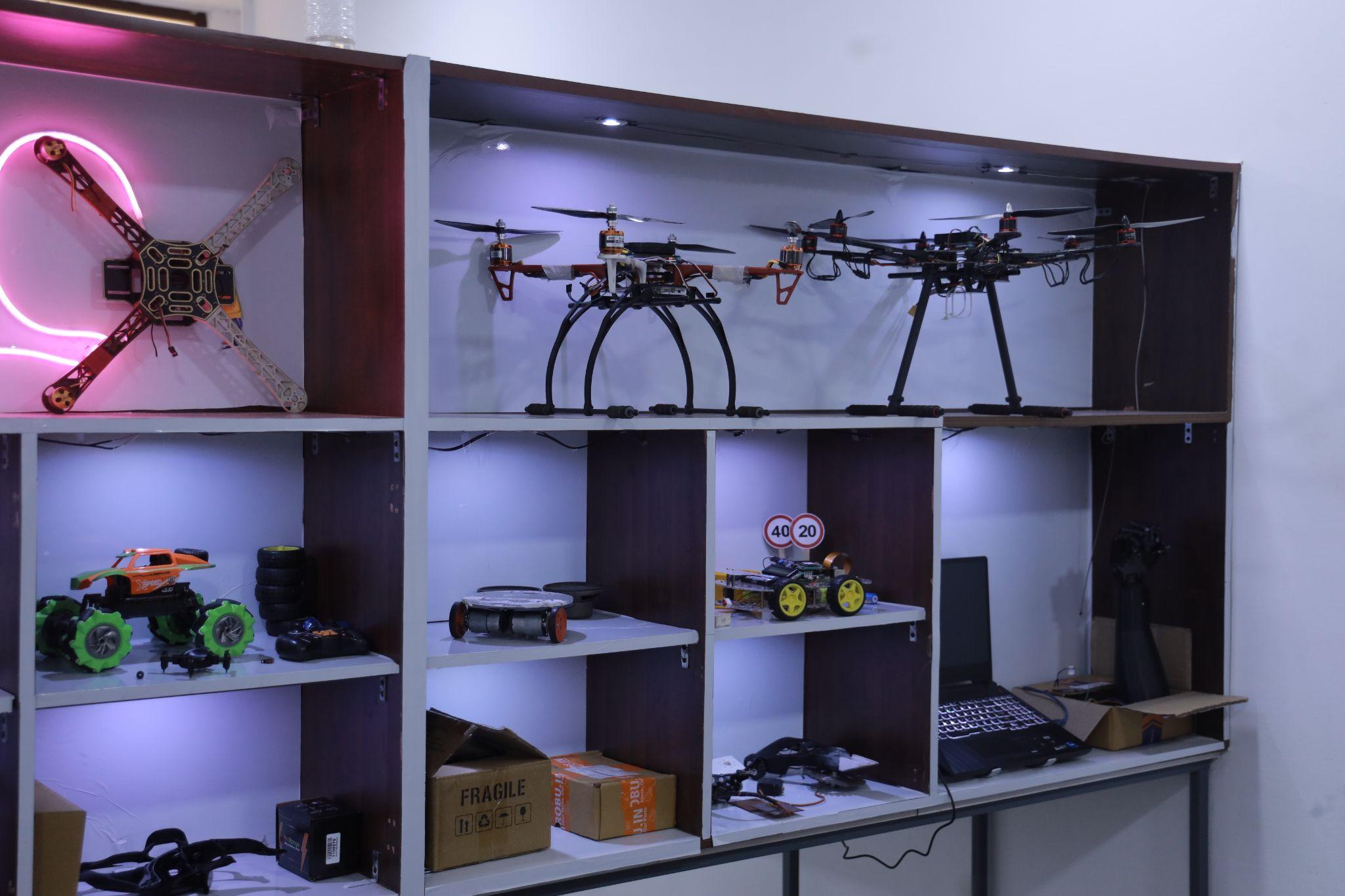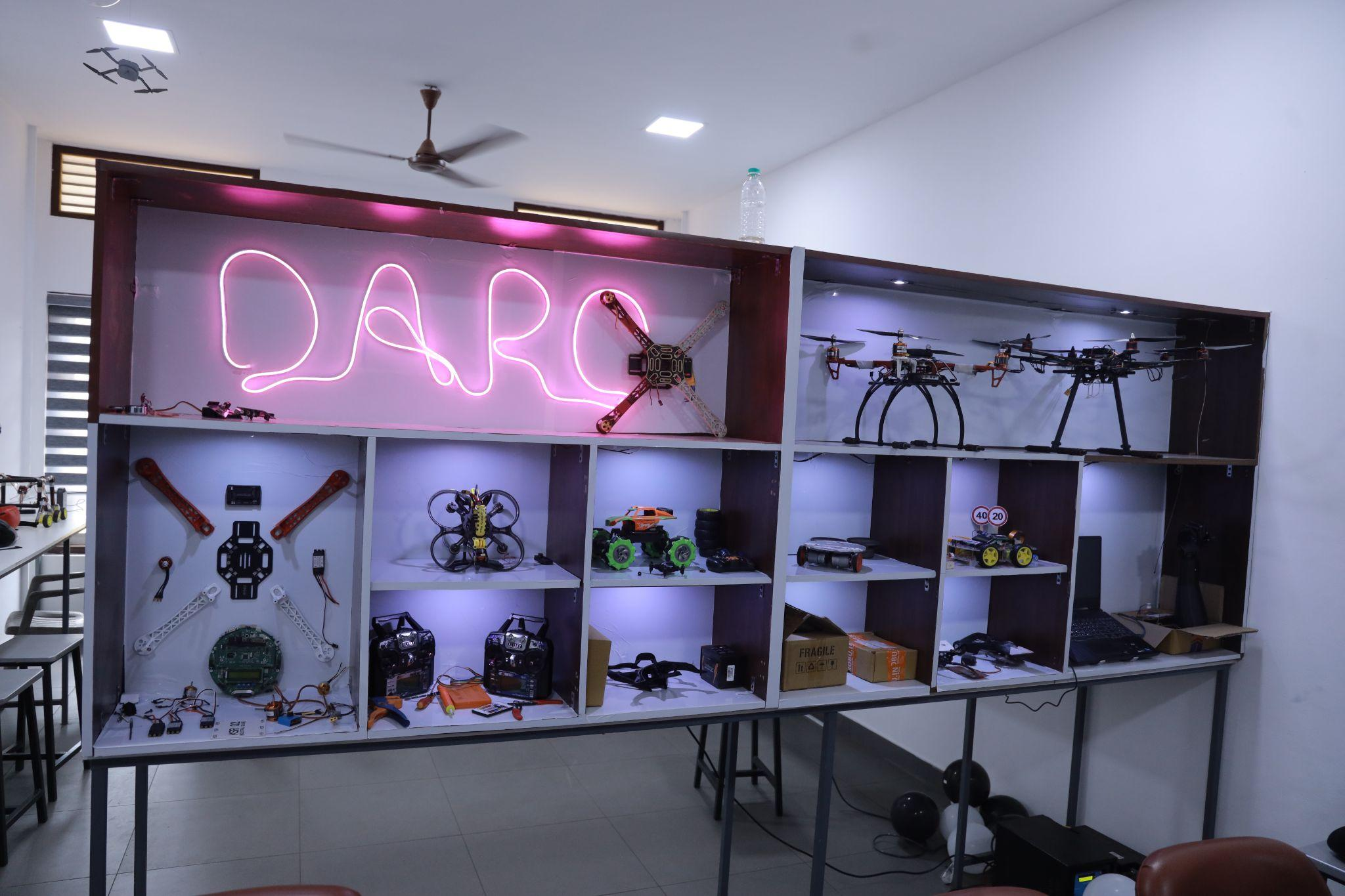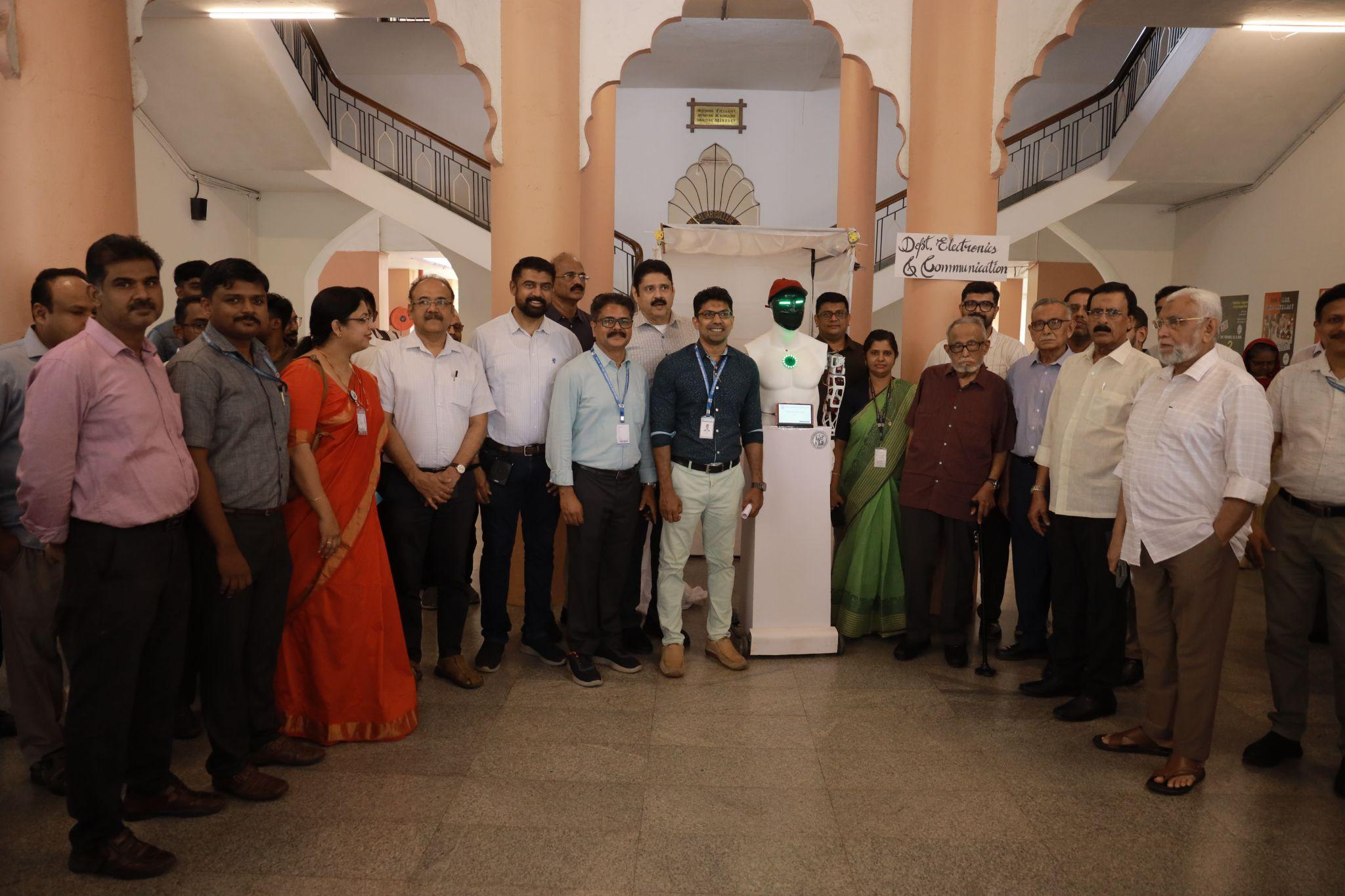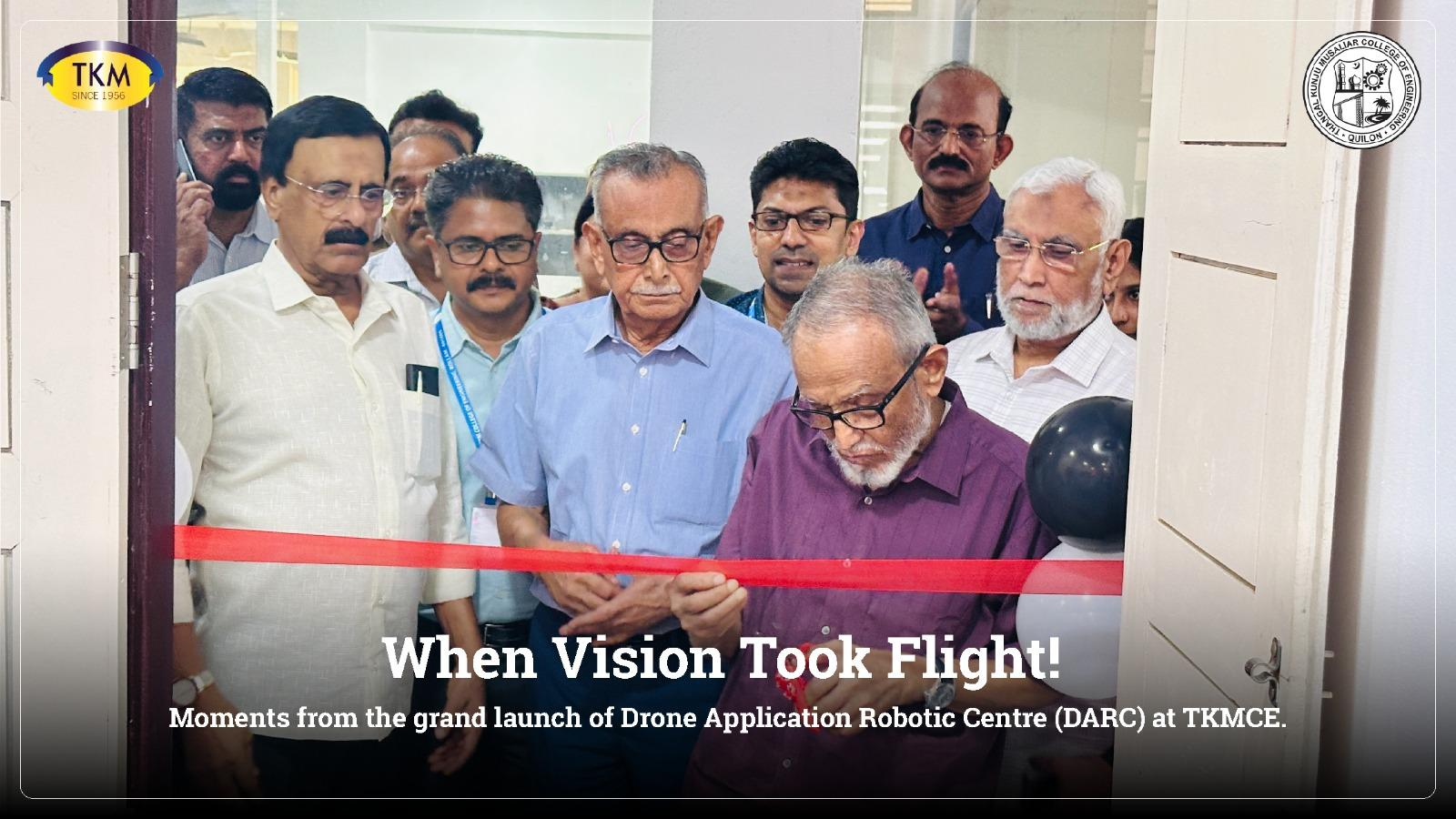Drones and Robotics for ECE Students: Why It’s Crucial to Learn Now

Presently, we are witnessing rapid progress in different technologies like artificial intelligence (AI), sensors, and computing power. These tech advancements have also made drone and robotics technology more autonomous, efficient, and versatile, leading to their increased adoption in various industries for tasks like delivery, surveillance, construction, and emergency response.
However, the technology behind tomorrow’s warfare, agriculture, logistics, and even rescue missions could be learned in your classroom today. Discover why now is the best time to explore drones and robotics for ECE students in India.
Also read: AI Courses in India: The Gateway to Innovation and Opportunity
Tech Trends in Engineering

Global tech shifts point towards autonomous and airborne systems. Drones and robotics for electronics and communication engineering students in India will equip them for opportunities related to these systems.
Technologies such as delivery bots and surveillance drones require expertise in communication networks, artificial intelligence (AI), and embedded systems. All these are core areas of electronics and communication engineering (ECE).
With the robotics innovations in India, ECE graduates can find roles in designing, developing, and maintaining autonomous and airborne systems. Some of the opportunities after drones and robotics for ECE students:
- A. Robotics and Automation
- ● Design and Development
- ● Robotics Labs and Research
- ● Autonomous Vehicle Technology
- B. AI and Machine Learning
- ● Computer Vision
- ● Machine Learning for Navigation and Control
- ● AI in Logistics and Transportation
- C. Communication Networks and IoT
- ● 5G and Beyond
- ● IoT for Drones and Delivery Bots
- ● Drone Detection and Security
- D. Emerging Technologies
- ● LiDAR and Sensors
- ● Edge Computing
- E. Reskilling and Upskilling
- ● Industry Collaboration
- ● Hands-on Experience
- ● Adaptability and Lifelong Learning
Bridging Theory and Practice in the ECE Curriculum
Drones and robotics for ECE Students are making abstract concepts in science, technology, engineering, and mathematics (STEM) tangible, and this is changing classroom dynamics forever. It involves a hands-on approach, fosters deeper understanding, boosts student engagement, and makes them job-ready.
- ● Flying drones can teach students different concepts in Physics and Maths.
- ● Students program and assemble drones using engineering principles, creativity, and problem-solving skills.
- ● Fun and engaging introduction to coding concepts through programming languages such as Python, Blockly, and Scratch
- ● Drones allow experiential learning.
- ● Drone projects can encourage communication, teamwork, and collaboration.
- ● Drones connect classroom learning to practical scenarios in areas like media production, geography, and environmental science.
- ● Drones can effectively teach deductive reasoning, advanced math concepts, and logic.
To know how the ECE curriculum at TKMCE helps bridge the gap between theory and practice, visit: https://tkmce.ac.in/electronics-and-communication-engineering
Future-Ready Skills & Career Opportunities
Automation and robot integration are growing across different industries. Hence, with drones and robotics for electronics and communication engineering students in India, you can fetch high-paying and high-impact jobs.
Here's why drones and robotics for ECE students are so crucial:
- ● High demand for robotic engineers
- ● Diverse career paths in different sectors
- ● It equips students to work with advanced technologies such as autonomous systems, AI, and machine learning
- ● Innovative approach to problem-solving while facing complex challenges.
- ● Robotics engineers earn a high salary for their specialized skills.
Essential robotics skills for engineers include:
- ● Programming
- ● Hardware design and electronics
- ● Control systems
- ● Computer vision
- ● AI and machine learning
- ● Mathematics
- ● Problem-solving and critical thinking
- ● Communication and collaboration
Further, robotics engineers contribute to significant advancements in fields such as
- ● Healthcare
- ● Manufacturing
- ● Space Exploration
- ● Disaster Response
Real-World Applications of Drones and Robotics for ECE Students: Beyond the Lab
The application of robotics and drones in electronics and communication engineering is incredibly diverse. These applications span diverse fields such as agriculture, construction, and disaster response.
Here's a more detailed look at ECE drone applications in different industries:
Agriculture:
- ● Crop Monitoring
- ● Precision Agriculture
- ● Soil Analysis
- ● Yield Estimation
- ● Livestock Monitoring
Construction:
- ● Site Mapping and Surveying
- ● Progress Monitoring
- ● Safety Inspections
- ● Infrastructure Inspection
Disaster Response:
- ● Search and Rescue
- ● Damage Assessment
- ● Delivery of Aid
- ● Mapping and Situational Awareness
- ● Disaster Risk Reduction
Other Applications:
- ● Wildlife Monitoring
- ● Environmental Monitoring
- ● Security and Surveillance
- ● Delivery Services
- ● Emergency Medical Services
Further, researchers in different parts of the world are working to develop wheelchairs driven by drones and AI to help individuals with disabilities live more independently.
Read further: AI tools breaking boundaries to elevate the lives of disabled individuals.
TKMCE’s New Drone Application & Robotics Center

TKM College of Engineering realises the relevance of drones and robotics for electronics and communication engineering students in India. The college realises that learning drones is not just theory anymore.

Hence, we have decided to inaugurate a dedicated Drone Application Robotic Centre (DARC) under the leadership of the Department of Electronics and Communication Engineering. The centre will be inaugurated on the 3rd of July 2025 by Dr. T.K. Shahal Hassan Musaliar (President - TKM College Trust) in the presence of ER. T.K. Jalaluddin Musaliar (Treasurer, TKM College Trust).

The inauguration of DARC will also include a drone show. The dedicated center is expected to benefit the students of the department through
- ● Hands-on experience
- ● Interdisciplinary learning
- ● Project-based learning
- ● Ethical considerations and
- ● Career opportunities
India & Global Context: The Emerging Ecosystem
Unmanned systems engineering in India is evolving rapidly as a result of
- ● Multi-sectoral applications
- ● Integration of machine learning, AI, advanced sensors, and more.
- ● Use of autonomous systems in unmanned vehicles like drones
- ● Government initiatives, drone regulations, and the establishment of training organizations
Further, India's growing tech landscape sustains drones and robotics for ECE students through
- ● Aatmanirbhar Bharat initiative
- ● Government support and regulations
- ● Private sector investment and growth
- ● Emerging technologies and research
- ● Training and skill development
ECE students can leverage this evolving tech landscape and government support to build promising careers in:
- ● Drone design and development
- ● AI and robotics integration
- ● Sensor technology and data analysis
- ● System engineering and integration
- ● Research and development
- ● Drone operations and maintenance
How ECE Students Can Get Started
- ● Build a strong basis in electronics, programming, and mechanics
- ● Leverage resources like online courses, specific certifications, and free resources
- ● Gain hands-on experience with robotics clubs, personal projects, internships, apprenticeships, and workshops
- ● Identify your niche, focus on particular applications, and stay updated with robotics innovations in India.
Drones and Robotics for ECE Students: Conclusion
Be a part of tomorrow's tech leaders who will fly. Choose drones and robotics for electronics and communication engineering students in India at TKMCE. Visit our labs. Join our clubs. Let your creations move.
Contact us to know more
Phone: +91 474-2712024
Email ID: principal@tkmce.ac.in
Also read: SAE India TKMCE Collegiate Club: Learning Through Projects
